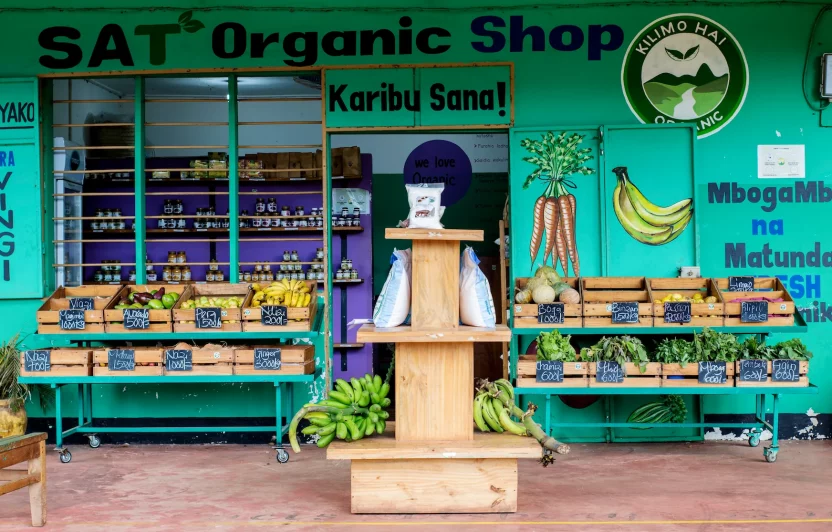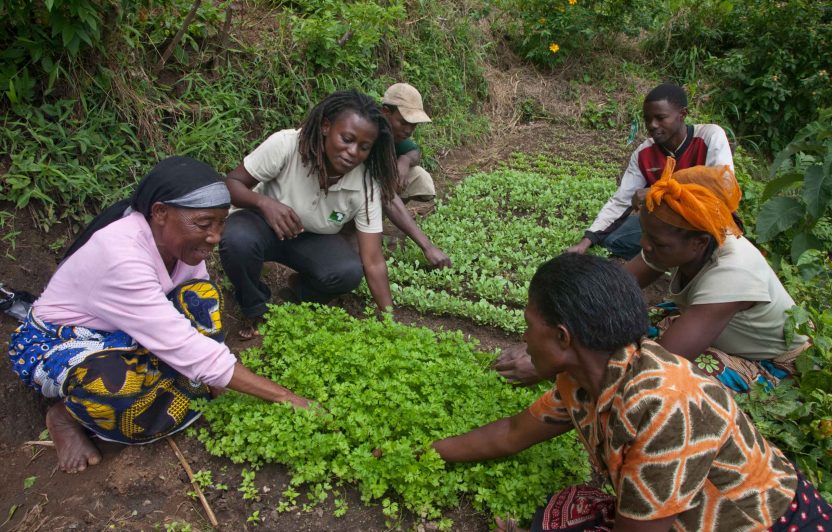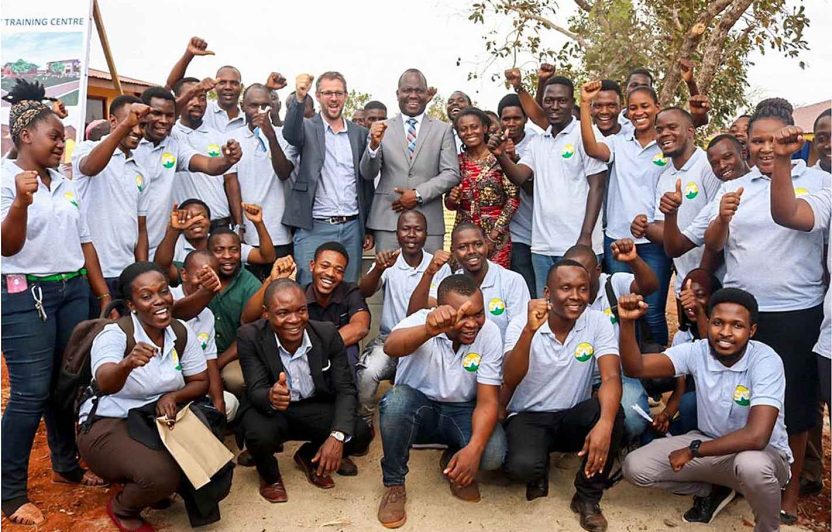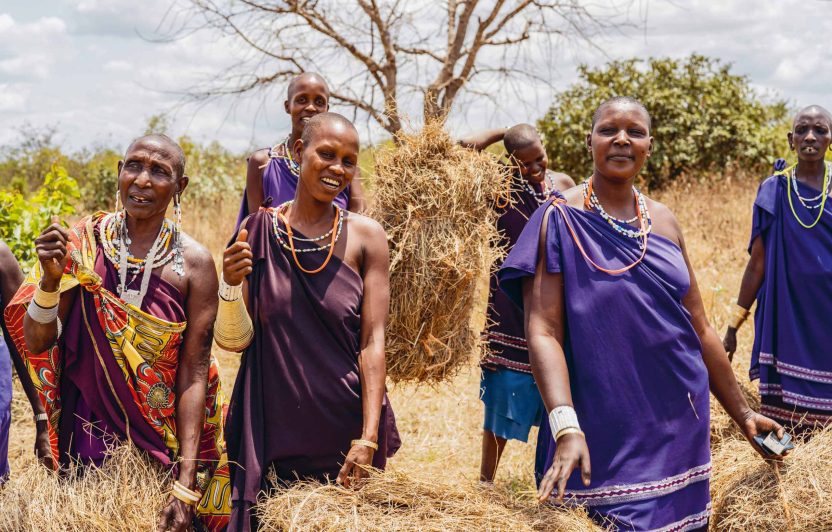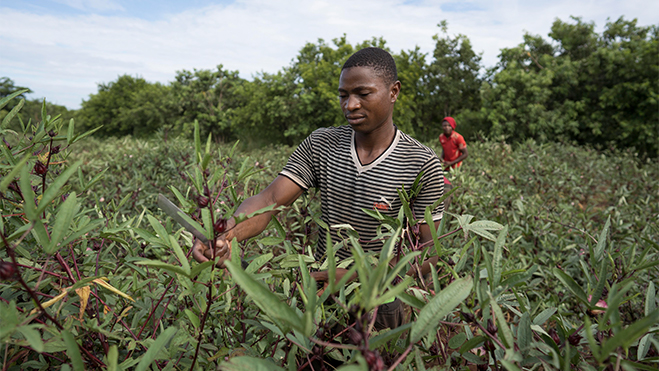
Johannes, you stock the hibiscus tea from Sustainable Agriculture Tanzania (SAT) in your online shop Five Good Goods. How did this come about?
While I was visiting my parents, my mother served the hibiscus tea, which she had received as a small gift for her donation to Biovision. As Biovision was a familiar name to me, I wondered how this tea came to Switzerland and whether there might be a possibility of working with SAT. Biovision put me in touch with SAT’s co-managing director, Alex Wostry, and his positive response arrived soon afterwards. SAT helps smallholder farmers to grow and diversify their products sustainably. This means that they produce a variety of crops, thereby promoting agro-biodiversity, maintaining soil health and securing their own income. There are virtually no total crop failures anymore. The hibiscus tea originates from this cultivation method and was also dried and packaged in Tanzania. Consequently, most of the added value benefits the local farmers. We don’t yet rely on certificates, but on trustworthy partners who grow crops ecologically and sustainably. So SAT was exactly the right partner for us. Although we have never met Alex and co-managing director Janet Maro in person, it was clear to us that this must be a good project – otherwise it would not be supported by Biovision.
Together with his wife Amaru and his cousin Alain, Johannes Küng has built up the online shop Five Good Goods. Johannes organises the imports and is responsible for the strategy of Five Good Goods.
What is Five Good Goods all about?
The idea of Five Good Goods is to offer five goods: tea, coffee, chocolate, sugar and fruit. These are all classic colonial goods known as “cash crops”: the raw products were produced exclusively for export to Europe and not refined until they reached the continent. They made the colonial powers very rich. Our vision is to turn this narrative around and benefit those who grow the products. The crucial thing for us is to make sure that the added value remains local. We import ready-processed products that can’t be grown in Switzerland. For example, most traders import unroasted green coffee into Switzerland. Normally, it is then roasted here to ensure the greatest added value. In other words, one kilogramme of raw beans, which costs 6 to 7 francs, is turned into coffee beans that cost 30 to 40 francs per kilogramme.
Are you successful with this idea?
We are not a start-up in the usual sense. We are not interested in making as much profit as possible, but in promoting products and people’s appreciation of them. After one and a half years, we are proud to say that more than 30% of the added value from our tea and coffee has remained in the country of origin. We also want to bring about change: to move away from industrial to sustainable agriculture, with specialised jobs and good wages. Our aim is to enable everyone involved in production – from cultivation to sales – to benefit and to make a good living from their work.
Where does the interest in promoting sustainable agriculture and sustainable products come from?
I am motivated by the desire to live in an intact environment. It has been proven that coffee grows better when it is not cultivated in monoculture, but as a mixed crop. Our products are ecological, even if they don’t have an organic label. And although we are only a small online shop, we make an impact by only buying products that have been produced without pesticides. We also support farms that focus on biodiversity. Among our partners, there are no farmers who only grow coffee. Their coffee is just one crop among many, so they are not dependent on only one product.
What exactly do you mean by sustainable and social?
For us, this means two things: on the one hand, we want to offer good ecological products and, on the other hand, we want to make a good life possible for all those involved in their production. We achieve this by sitting down at the table with the producers and determining together what they need for fair production. For example, our coffee producer Dorine buys raw beans from various farmers. She then has them processed and roasted. However, her goal is to set up her own processing station so that she can pay the farmers more. This is exactly the sort of thing we want to encourage. We are not currently making a profit with Five Good Goods. If that changes, we would like to assist Dorine financially in setting up her own station. And the social enterprise SAT Holistic Group does exactly the same thing. It also involves the producers and gives them a stake in the company.
In your opinion, how can we bring about change and make consumers more interested in where their food comes from?
I think participation is the key. I had an “aha” moment on a solidarity farming project. Since realising how much work goes into producing certain foods, I eat them much more consciously. For example, when I see 500 grammes of lamb’s lettuce in the supermarket for two Swiss francs, I know there’s a problem. We want to create this awareness in Switzerland as well. That’s why we offer workshops and show people where our products come from, how they are grown and how best to prepare them. Many of the participants confirm that they really look at the product differently afterwards.



